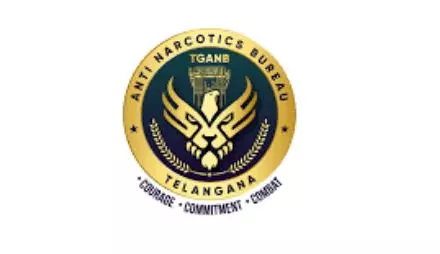Hyderabad: Justice K. Lakshman of the Telangana High Court on Tuesday reserved its verdict on the question of whether an MLA was a public servant or not, and would an alleged disruption at a government function by an MLA attract an offence under the Indian Penal Code. The petition also raised the question as to whether prior sanction under Section 197 CrPC was required for prosecution. The judge was dealing with a criminal petition filed by Munugode Congress MLA Komatireddy Raj Gopal Reddy seeking quashing of criminal proceedings initiated against him based on allegations linked to a government organised event held on July 26, 2021, at SMR Convention Centre, Choutuppal. The chargesheet accused him of creating disturbance at the event and included allegations of obstructing a public servant in discharge of public function, assault on public servant, mischief causing damage and other offences. Counsel for the petitioner Mahesh Mamindla argued that the prosecution was politically motivated and lacked credible or direct evidence. He pointed out that as an elected representative performing public duties, the acts alleged against Raj Gopal Reddy do not constitute an offence against a public servant. Going by the definition relied upon by the public prosecutor, Mamindla said the petitioner was a public servant under Section 21 IPC, and any prosecution for acts performed in that capacity mandated prior sanction from the competent authority, which was not obtained in this case. He pointed out that attendance of the petitioner at a government programme within his constituency, especially one concerning public welfare like the distribution of fair price cards, was an inherent and essential part of his official duties. Petitioner contended that apart from the chargesheet being devoid of prima facie evidence, and failure to disclose cognisable offence directly attributable to him, Section 197 CrPC imposed an absolute bar on the prosecution of a public servant for acts done “or purporting to be done in the discharge of his official duty” without prior sanction from the competent authority. This was a jurisdictional prerequisite, he said. The public prosecutor opposed the contentions and argued that the FIR and chargesheet disclosed a prima facie case. He argued that issues are trailable.
Electricity is basic right: HC
Justice Surepalli Nanda of Telangana High Court reiterated that electricity was a basic necessity and could be withheld to an occupant of a premises without due process of law. The judge dismissed a writ plea filed by Mumtaz Yarud Dowla Waqf seeking disconnection of electricity supply to a disputed occupant of its property at Lakdikapul, Hyderabad. The judge held that under Section 43 of the Electricity Act, 2003, an “occupier” of premises was entitled to electricity and that such disputes could not be adjudicated under Article 226 of the Constitution. The petitioner alleged that unofficial respondent illegally occupied its property and was granted an electricity connection by the TSSPDCL in violation of law. The board contended that the occupant was not a legally inducted tenant and failed to produce the required documentation despite repeated notices. The TSSPDCL argued that the occupant applied for the connection as an occupier and that electricity could not be denied solely on account of ownership disputes, which should be resolved through civil litigation. The occupant, in turn, produced documents confirming the tenancy rights and claimed that the supply was necessary to carry on business, invoking the constitutional right to life. Citing multiple Supreme Court decisions the judge reaffirmed that electricity is a basic necessity and cannot be withheld without due process. The judge also emphasised that the Electricity Board’s role was limited to verifying occupancy, not adjudicating ownership disputes. Since the petitioner did not challenge the proceedings of December 2014 that advised them to seek civil remedies, the judge found no merit in the writ petition and dismissed it, observing that tenancy and title disputes must be resolved in appropriate forums.
Farmers complain of pollution
Justice B. Vijaysen Reddy of the Telangana High Court took on file a writ petition challenging the failure of the state authorities in protecting and maintaining the water quality of a 150-year-old pond located in Nalgonda. The judge was hearing a writ plea filed by Bomma Pedduluand seven other farmers and landowners residing around the pond, who contended that the water body was crucial for agricultural purposes, drinking water needs, and cleaning of cattle. The petitioners alleged that the authorities recently made arrangements to release drainage water into the pond, which would severely pollute it and cause irreparable damage to the surrounding farmlands and the daily lives of the villagers. Despite making several representations to various authorities, including the district collector and the Chief Minister, the petitioners stated that no effective remedial action was taken. The government pleader representing the state contended that the issue involved broader environmental and infrastructural aspects but failed to offer a satisfactory explanation for the inaction. After hearing both sides, and considering the consequences and the continued dependence of the villagers on the pond, the judge directed the Nalgonda district collector and Nalgonda municipality to pass a reasoned order on the petitioners representations within six weeks.
SC, ST Railway Association Plea on dissolution
Justice N.V. Shravan Kumar of the Telangana High Court will continue to hear a writ plea challenging action of the Central Executive Committee (CEC) of the All India Scheduled Castes and Scheduled Tribes Railway Employees Association, South Central Railway, in dissolving the elected zonal executive committee and appointing an ad hoc committee through a letter issued in April. The judge was dealing with a plea filed by A. Ephraim and G. Papa Rao, former zonal president and zonal secretary. The petitioner argued that such an action was taken unilaterally and arbitrarily, without assigning any reason or following due process. The petitioner also challenged the validity of the circular which validated and circulated the appointment of the ad hoc committee recommended by the CEC. The petition sought to strike down a Bye-Law of Part II of the Association’s Memorandum of Bye-Laws, which empowers the Central Executive Committee to dissolve any branch or body without providing justification and precluded legal remedies against such decisions. The petitioners contended that this provision was unconstitutional and facilitates arbitrary exercise of power. The judge took note of the submissions and posted the matter for further hearing.







